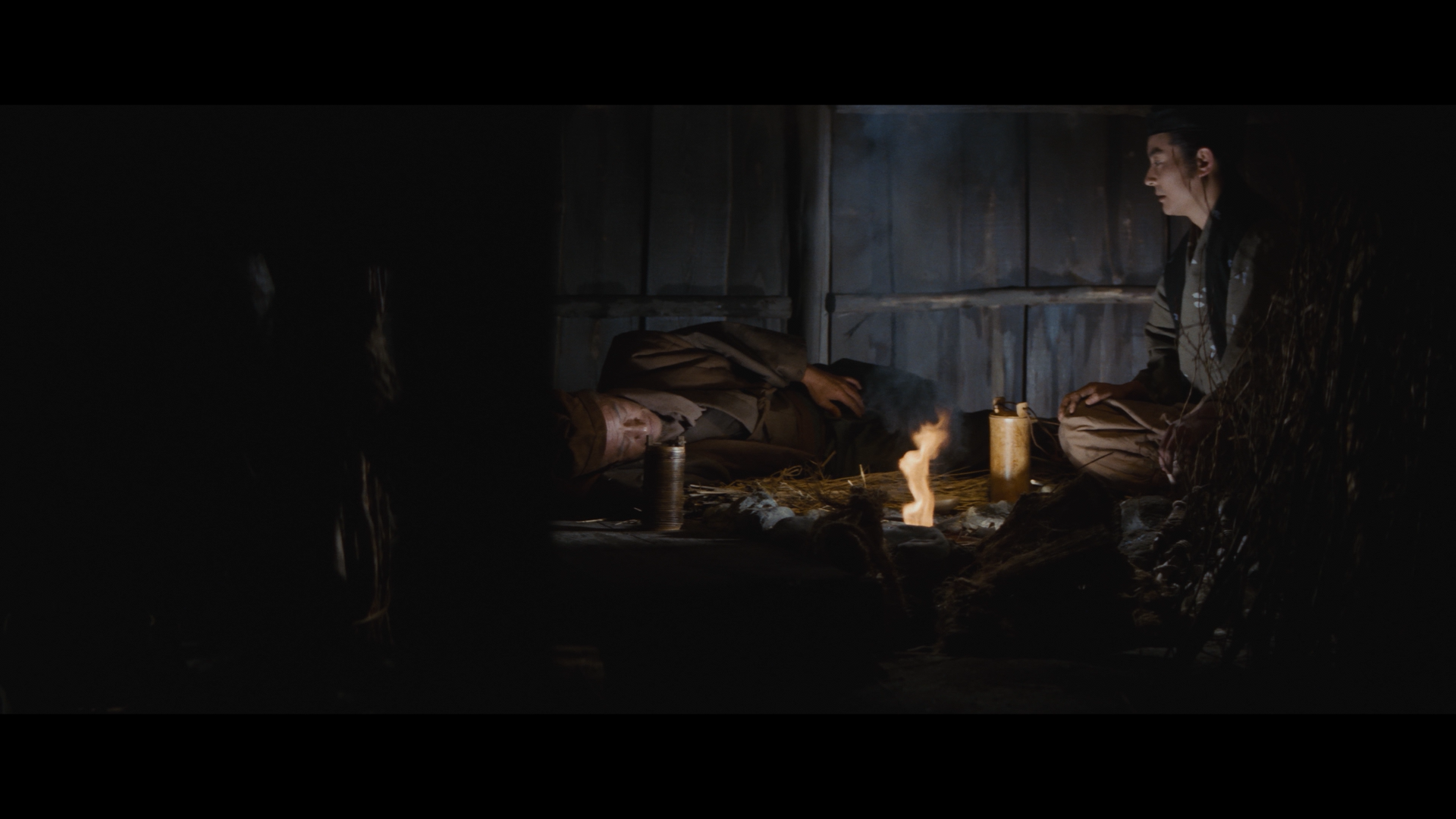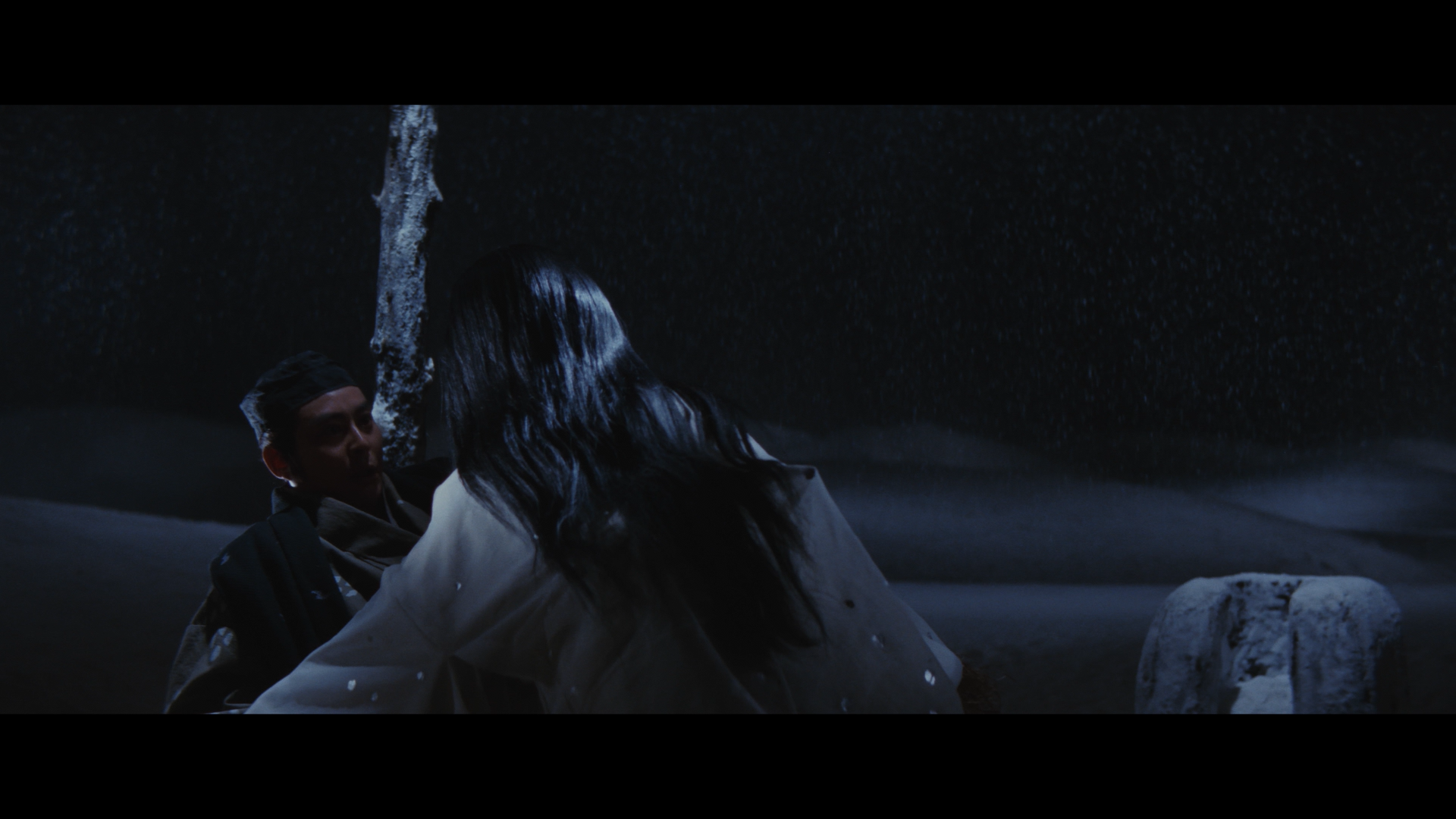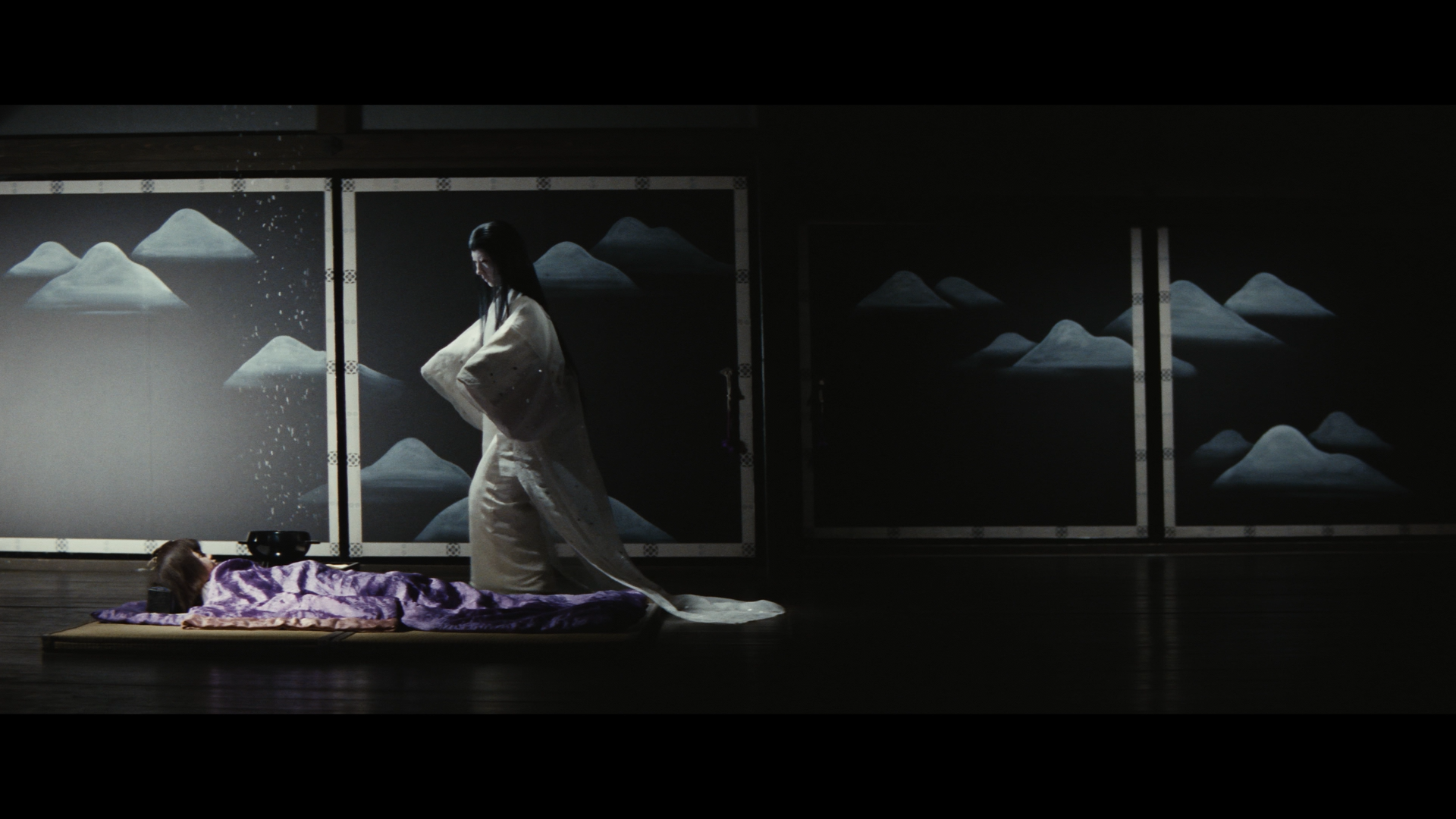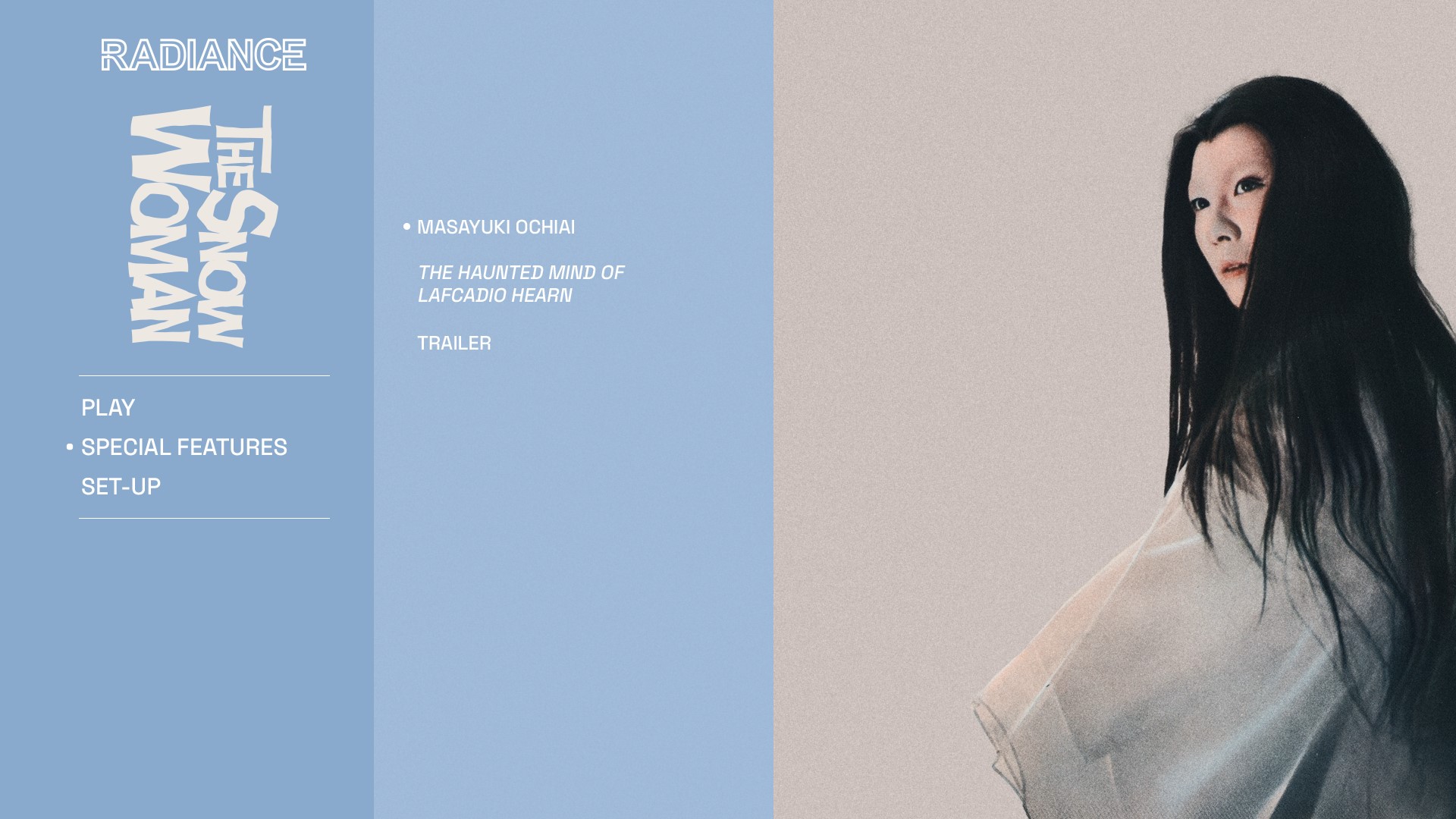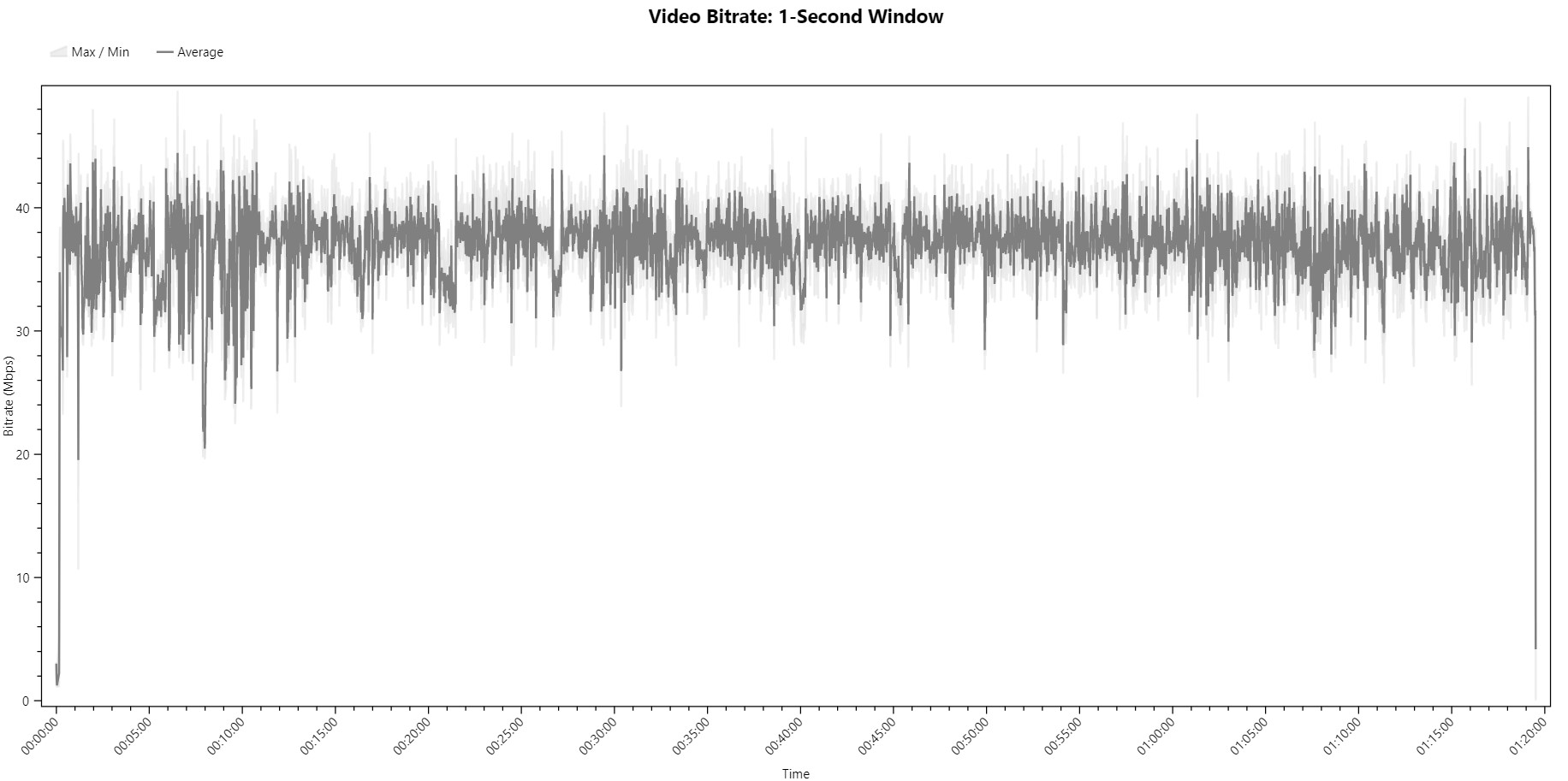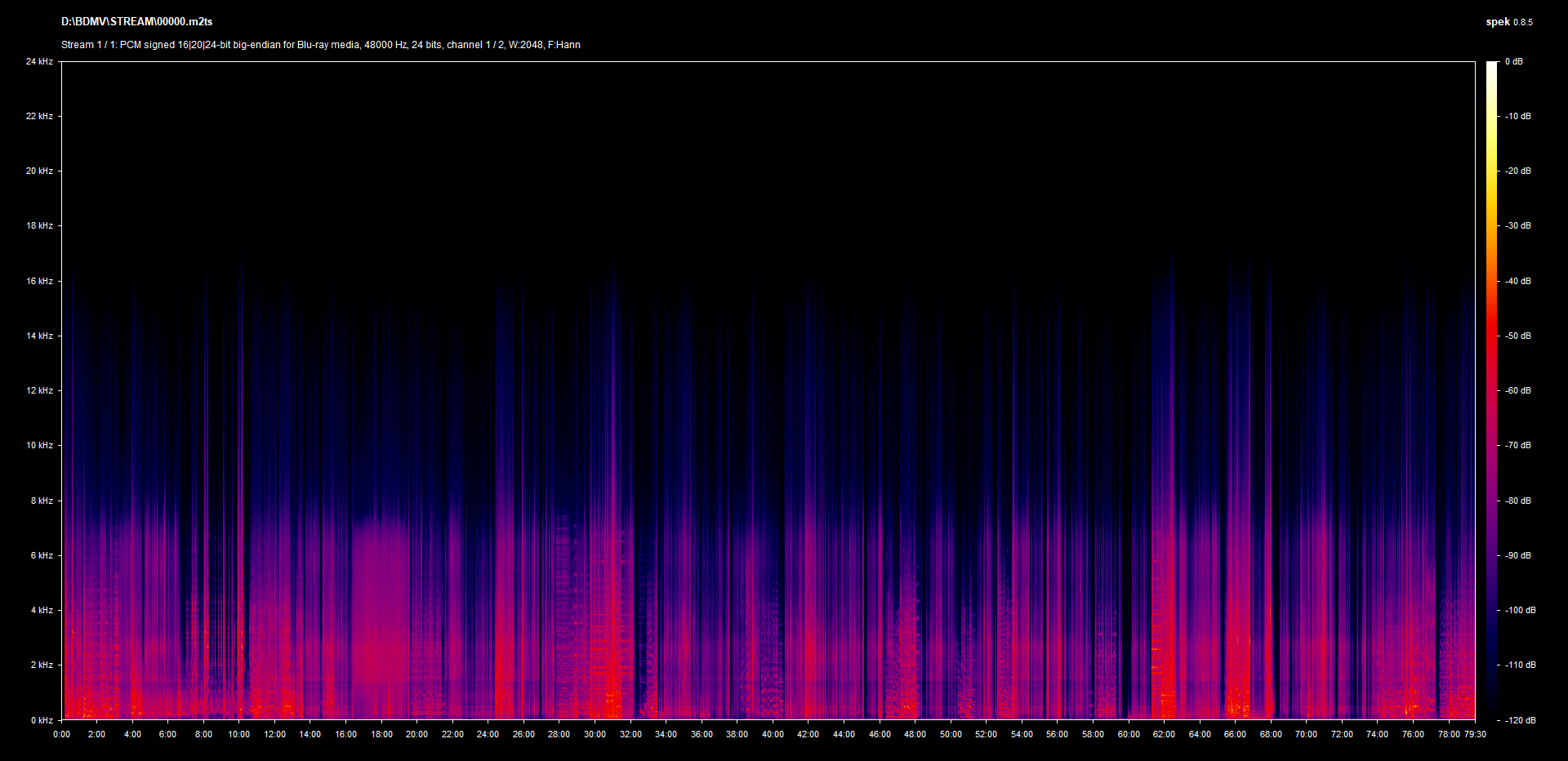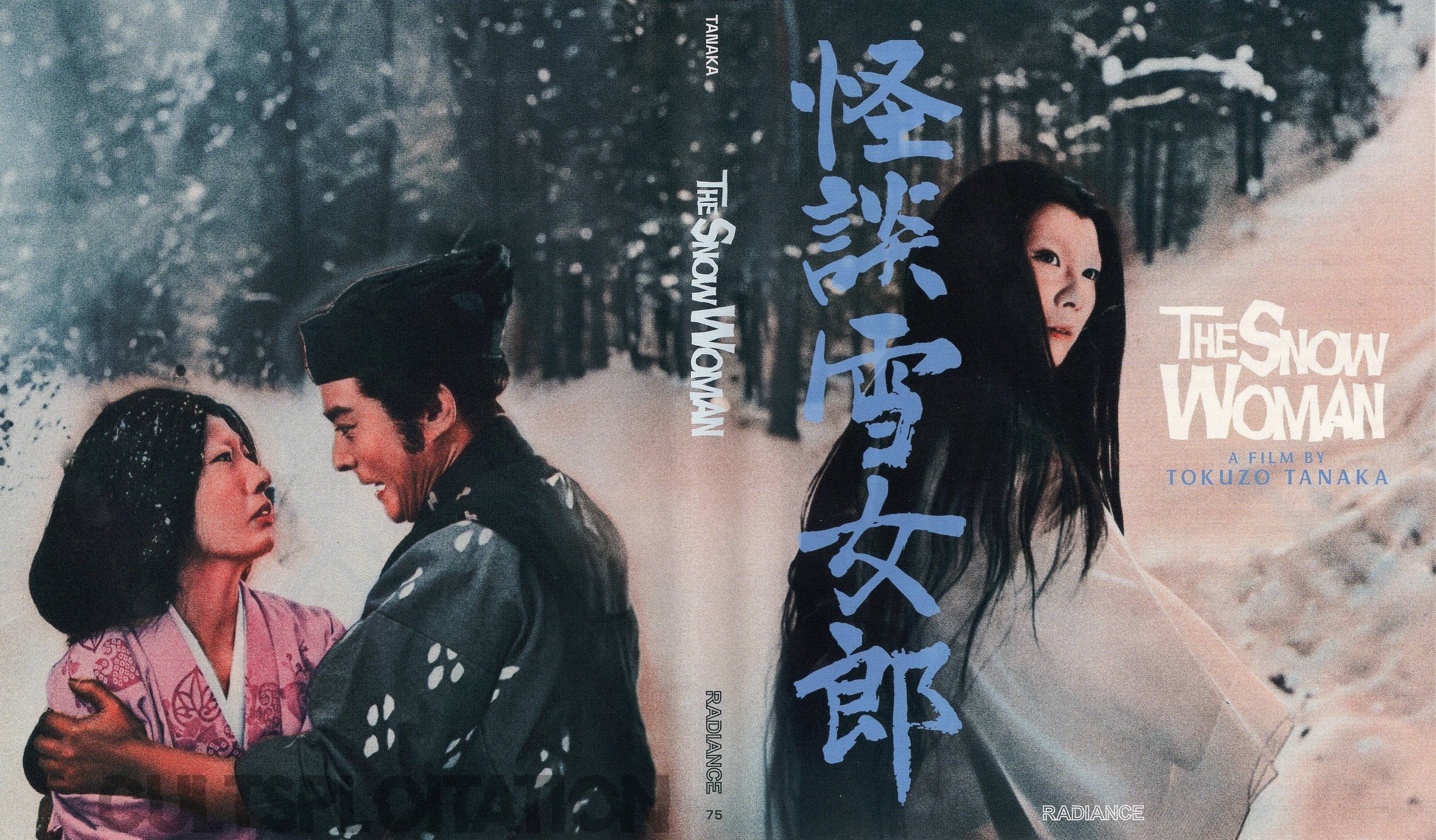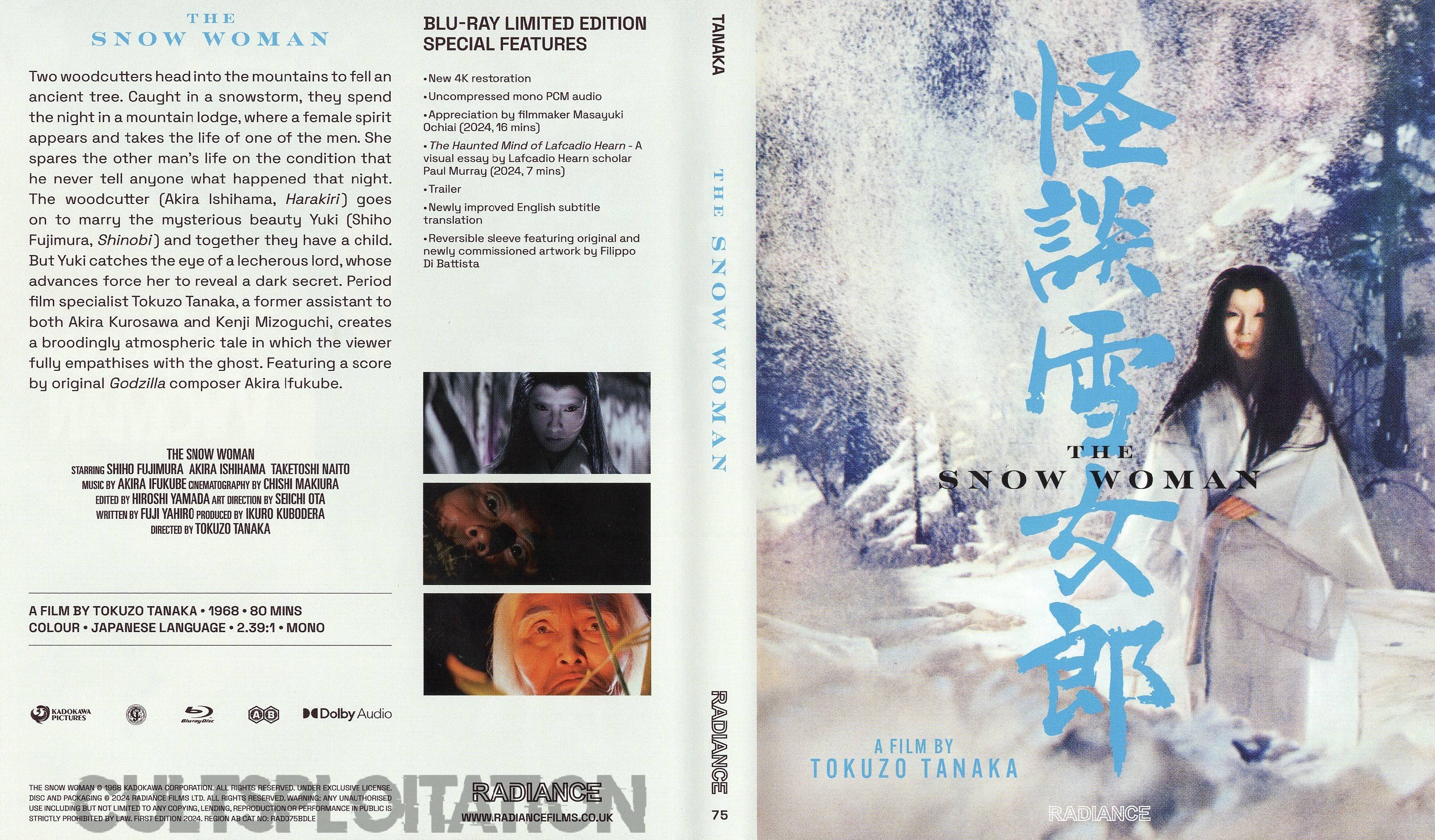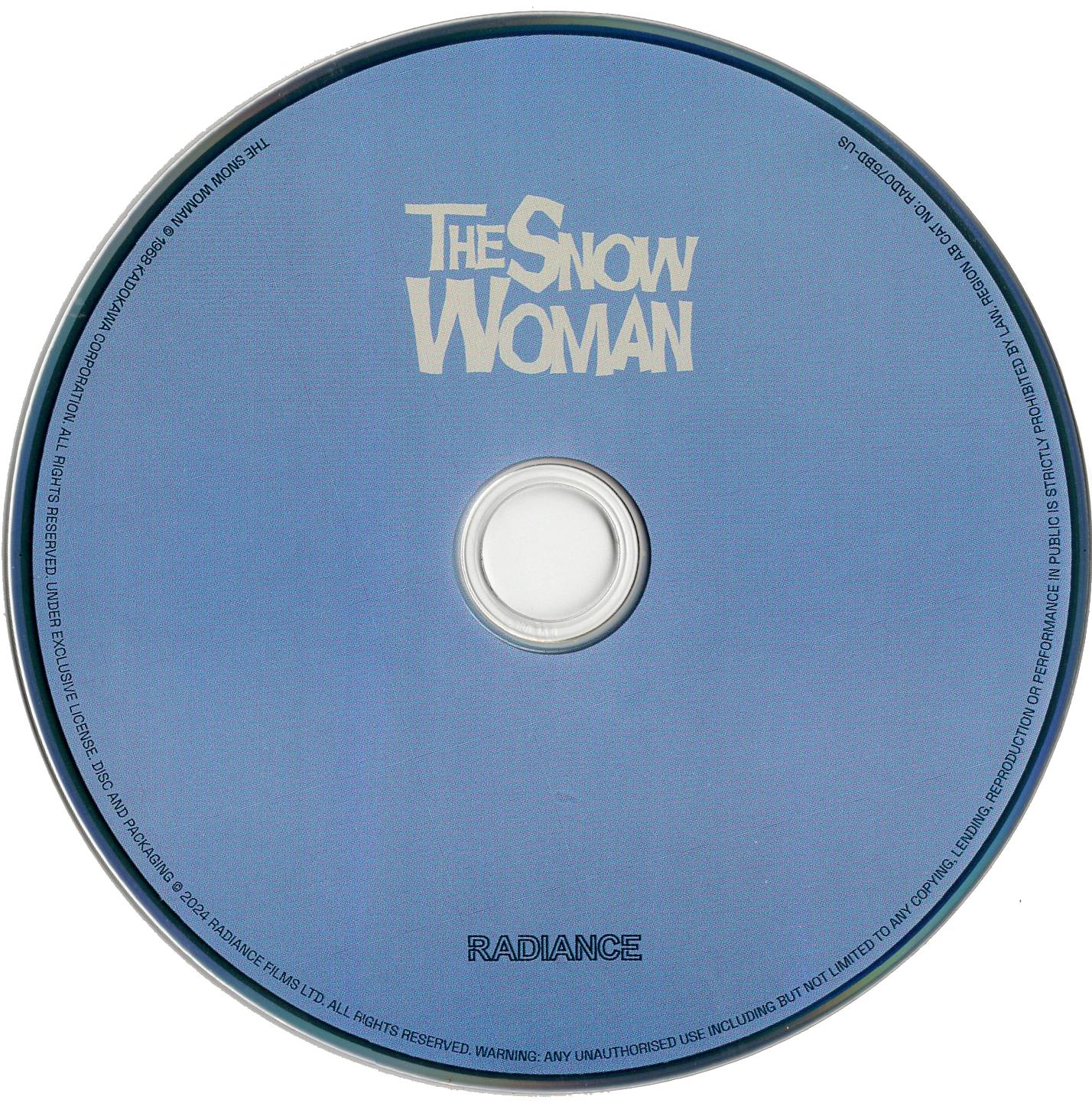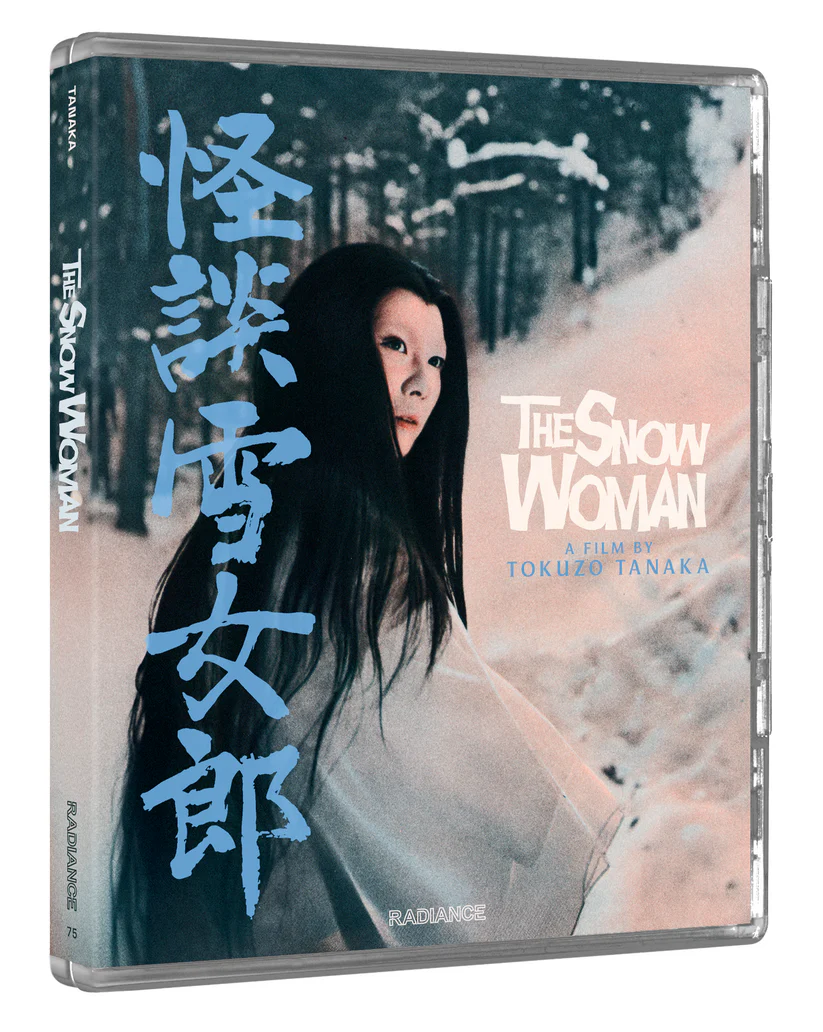
1968’s The Snow Woman (director: Tokuzo Tanaka) is inspired by the legend of the yuki-onna of Japanese folklore, and more specifically adapted from the work of the same name by Lafcadio Hearn (thankfully reprinted by Radiance Films in this boxset). Following a very similar premise to Hearn’s tale, the film explores the romantic relationship between a sculptor Yosaku (Akira Ishihama) and his wife Yuki (Shiho Fujimura) after Yosaku survives a meeting with the Snow Woman one night that leaves his mentor dead from the cold. The Snow Woman leaves Yosaku alive so long as he promises never to speak of the night’s events, and he keeps that oath while married to Yuki until one day the Snow Woman visits vengeance on a few evildoers in their village, where it’s revealed that Yuki and the Snow Woman are one and the same.
The Snow Woman starts out with an extremely intriguing premise; Tanaka’s direction during the first terrifying encounter with the Snow Woman is exceptional, showcasing eerie visuals and making excellent use of Fujimura’s ethereal qualities to conjure a nightmarish image of the demon, complete with golden eyes and haunting paranormal qualities. This sets in motion the film’s overarching plot, that Yosaku is forced to harbor the secret of the Snow Woman lest he wants to experience this horrific visitation again. The first scene is perhaps the most compelling element of the film, and that can also be something of a disappointment considering the rest of The Snow Woman is a lot slower and more plodding in its depiction of Yosaku and Yuki’s eventual marriage and the burden of Yosaku’s task of sculpting a Buddhist statue.
Unfortunately, the pacing of the movie suffers due to the decision to push the Snow Woman to the background in favor of more earthly struggles, and it’s not until the film’s final 20 minutes that the supernatural being truly returns to terrorize again. Part of this is most likely due to Tanaka attempting to adapt Hearn’s relatively short tale into a feature length film; but also of note is the inclusion of Buddhist principles that attempt to explain and mythologize the Snow Woman’s compassionate mortal presence. These can feel difficult to relate to for some western audiences, and overall it does tend to leave The Snow Woman bookended by strong sequences but otherwise relatively emotionally vacant in its middle act.
Even so, The Snow Woman is certainly effective in its approach at visualizing the ghostly Japanese folklore, and it can be surprisingly haunting in its moodier atmospheric moments. It does at times feel somewhat aimless, but an affecting conclusion and some impactful scares elevates this retelling of Hearn’s story.
Blu-ray
The Snow Woman also receives a new 4K restoration from Kadokawa Corporation for Radiance Films’ Daiei Gothic boxset. This transfer is quite strong, with good detail that is specifically pronounced in prominent lighting and highlights facial textures during close-up shots, along with the thread textures of traditional garb. The Snow Woman employs a number of snow effects which are managed well here, along with strong darker sequences that don’t lose delineation. Grain resolves nicely with no overt clumpiness, and whatever source was used looks to be in good condition without much noticeable damage. Color grading is also more consistent here than The Ghost of Yotsuya, and this helps accentuate those disturbing golden eyes of the Snow Woman.
The film’s audio is an LPCM 2.0 mono Japanese track with default English subtitles. Dialogue is clean and clear, with the only distortion coming from the visceral sound effects accompanying the Snow Woman’s presence. The great soundtrack ambience from Akira Ikufube is also well-represented.
For extras, Radiance Films offers an interview with director Masayuki Ochiai who dives into the themes of The Snow Woman, its lighting and shadow interplay, and the difference between yokai and ghosts in a 15 minute sequence. Also included is a short visual essay by Paul Murray on the works and life of Lafcadio Hearn, specifically his role in influencing Japanese horror mythology. A theatrical trailer is included.
The Daiei Gothic boxset includes an essay booklet featuring writing from Tom Mes on the history of Japanese gothic, a rundown of yokai by Zack Davisson, archival film reviews of the three films in the collection, and. two Lafcadio Hearn stories reprinted (including Yuki-Onna as mentioned above). Also included is reversible cover artwork.
Extra Features
- NEW 4K restoration from Kadokawa Corporation
- NEW interview with filmmaker Masayuki Ochiai (1080p; 15:50)
- NEW A visual essay on writer Lafcadio Hearn by Paul Murray (1080p; 6:47)
- Trailer (1080p; 2:16)
- NEW Reversible sleeve featuring original and commissioned artwork by Filippo Di Battista
Verdict
The Snow Woman features an effective retelling of the myth of yuki-onna couched in a tale of humanity for both mortal and immortal beings. This Blu-ray from Radiance sports a very good transfer and a number of helpful contextual extras.


